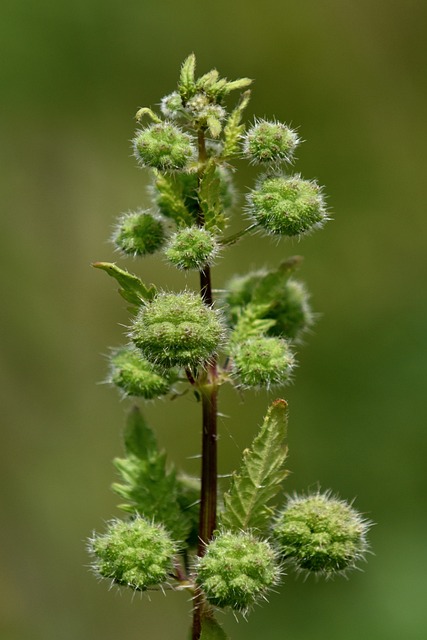2021 marked a significant milestone for THCA (tetrahydrocannabinolic acid), as it became legally recognized and studied for its therapeutic potential in Maine. This non-psychoactive cannabinoid, abundant in hemp and cannabis plants, has garnered attention for its health benefits, which include anti-inflammatory, neuroprotective, antiemetic, and analgesic properties. It's been found to potentially alleviate symptoms of arthritis, multiple sclerosis, and chemotherapy-induced nausea. With Maine's progressive cannabis regulations, residents can now legally possess, cultivate, and use THCA flowers directly, bypassing the psychoactive effects that emerge when it decarboxylates into THC upon heating. The state's clear legislative updates have facilitated this exploration, making Maine a leading state in cannabinoid research, particularly with regard to THCA's legal status and its potential contributions to well-being. Users are advised to stay informed about state laws and regulations to ensure they are utilizing THCA products responsibly within the framework established by Maine's cannabis reform measures.
Exploring the burgeoning landscape of cannabinoid research, this article delves into the therapeutic potential of THCA flower, now legally accessible in Maine. As legislation evolves to embrace these compounds, understanding their impact on health and well-being becomes increasingly important. We’ll guide you through the nuances of THCA’s effects, its legal standing in Maine, and how it differs from its psychoactive counterpart, THC. Join us as we unravel the benefits of this cannabinoid sensation.
- Exploring the Therapeutic Properties of THCA Flower: Legal and Beneficial in Maine
- Understanding THCA: The Potential Health Advantages of Maine's Newly Legal Cannabinoid
- THCA Flower in Maine: A Comprehensive Guide to Its Uses, Effects, and Legality
Exploring the Therapeutic Properties of THCA Flower: Legal and Beneficial in Maine

THCA, or tetrahydrocannabinolic acid, is a non-psychoactive cannabinoid found in the Cannabis sativa plant. As legislation evolves, THCA has garnered attention for its therapeutic potential, particularly within the context of Maine’s progressive laws regarding cannabis use. In Maine, where THCA flowers are legally permissible under state law, enthusiasts and health-conscious individuals explore their benefits without the psychoactive effects associated with THC, the acidic form of which THCA converts upon heating. The therapeutic properties of THCA flower have been linked to a variety of potential health benefits, including anti-inflammatory and neuroprotective effects. Studies suggest that THCA may offer relief for pain and inflammation, making it a valuable option for those seeking alternative treatments for conditions like arthritis and multiple sclerosis. Additionally, preliminary research indicates that THCA could have antiemetic properties, which may be beneficial for individuals undergoing chemotherapy who experience nausea and vomiting. As the legal landscape in Maine continues to support cannabis research and consumption, the scientific community is delving deeper into understanding how THCA flowers can benefit overall well-being without the mind-altering effects of its more famous counterpart, THC.
Understanding THCA: The Potential Health Advantages of Maine's Newly Legal Cannabinoid

2021 marked a pivotal moment for cannabis enthusiasts and health-conscious individuals in Maine, as THCA, or Tetrahydrocannabinolic Acid, became legally recognizable. THCA is the raw, non-psychoactive precursor to the well-known compound THC (Tetrahydrocannabinol), found abundantly in hemp and cannabis plants. Unlike its psychoactive counterpart, THCA is legal under federal and state law in Maine when derived from hemp. This legality has opened doors for researchers and consumers to explore the potential health advantages of this promising compound.
Initial studies suggest that THCA interacts with the body’s endocannabinoid system, which plays a crucial role in regulating various physiological processes, including pain, inflammation, and immune response. Preliminary research indicates that THCA may offer anti-inflammatory, neuroprotective, and anti-nausea properties, potentially benefiting those suffering from conditions like arthritis, multiple sclerosis, and chemotherapy-induced nausea. Moreover, its potential as a natural remedy for chronic pain and its role in inhibiting the growth of certain types of cancer cells are areas of active investigation, promising a broader understanding of THCA’s benefits as research continues to evolve. The legalization of THCA in Maine has thus positioned the state at the forefront of this emerging field, with the potential to harness the therapeutic properties of this cannabinoid for the betterment of public health.
THCA Flower in Maine: A Comprehensive Guide to Its Uses, Effects, and Legality

THCA, or Tetrahydrocannabinolic Acid, is a non-psychoactive cannabinoid found in raw cannabis plants, which, when heated, converts into the well-known psychoactive compound THC. The interest in THCA stems from its potential therapeutic properties, which some users report include pain relief, anti-inflammatory effects, and a possible reduction in anxiety and nausea without the intoxicating effects associated with THC. In Maine, the legal status of THCA flower has been a topic of discussion since the state’s cannabis reform initiatives. As of the latest updates, Maine residents can legally possess and cultivate cannabis for personal use, including the cultivation of raw cannabis plants that contain THCA. This has opened up new avenues for consumers to explore the potential benefits of THCA directly, without the need for conversion through heating or other processes. However, it’s important to stay informed as state laws can evolve and regulations regarding cannabinoids like THCA can change. Users interested in the potential wellness applications of THCA flower must adhere to Maine’s age restrictions and purchasing limits to comply with local legal requirements. Understanding the nuances of these regulations is crucial for anyone considering incorporating THCA flower into their wellness routine within the state of Maine.
THCA, or tetrahydrocannabinolic acid, has emerged as a subject of significant interest due to its potential health benefits and the recent legalization in Maine. This article has delved into the therapeutic properties of THCA flower, offering insights into how it may offer wellness advantages without the psychoactive effects typically associated with cannabis. With the legislative landscape evolving, residents of Maine now have access to this promising compound within a regulated framework. As research continues to shed light on its benefits and proper usage, it’s clear that THCA flower holds a promising role in the wellness arsenal of individuals seeking natural alternatives for health and comfort.
